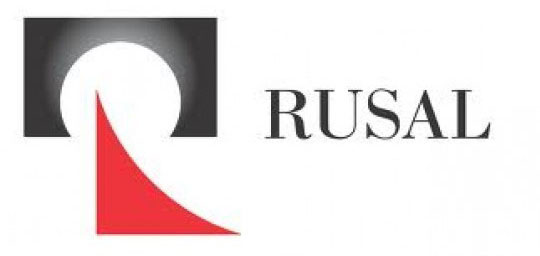Russian aluminum giant Rusal, which is the parent company of the Bauxite Company of Guyana Incorporated (BCGI), has declared a net profit of US$1.698 billion for 2018, representing a growth of 39% over the previous year despite US sanctions.
According to a statement on the company’s website, total revenue increased 3.1% to US$10.28 billion against US$9.969 billion for the same period the previous year.
The reported recurring net profit saw a 7.8% year-over-year surge in 2018 and amounted to $1.695 billion.
The company credits the growth to a 7.2% increase in aluminium prices at the London Metal Exchange where in 2018, a tonne of the metal was priced at US$2,110, compared to US$1,968 in the previous year.
Chief Executive Officer, Evgenii Nikitin commenting on the company’s performance, praised its skillful crisis management and ability to adapt to a new operations environment in the face of sanctions from the US Office of Foreign Assets Control (OFAC).
“It maintained its strong market position through its high managerial competence and operational flexibility,” he said, before adding that the 2018 results demonstrated Rusal’s solid position in its core business.
“The key achievement of the year is that despite the OFAC Sanctions, the Company remained highly operational, avoided any seismic personnel cuts whilst maintaining well-established multi-industrial supply chains in the countries of operation; this signaled to customers and investors that our business model remains efficient, even in difficult times,” Nikitin noted.
In April 2018, Rusal was included in an extended blacklist of enterprises and individuals hit by US economic penalties. Rusal specifically had been under threat of sanctions by the US over Russia’s interference in the US elections. The Trump administration has, however, lifted the threat of sanctions which had targeted Rusal’s owner Oleg Deripaska.
Despite these sanctions in 2018, Nikitin said, Rusal’s aluminium production totaled 3,753 thousand tonnes, which is a 1.2% increase compared to the prior year. Total production dynamics remained largely stable, with capacity utilisation reaching 96%, he further noted.
Nikitin added that the company has continued to actively promote its new brand of low carbon aluminium, “ALLOW,” which has been received well, particularly from climate-conscious customers and has fostered Rusal’s aim of being a green and environmentally-friendly company.
Additionally in January 2018, Nikitin said, the company successfully placed its third Eurobond issue, with more than 100 investors from Europe, America, Russia and Asia participating in the order book for Rusal’s new Eurobond issuance, which exceeded US$1.5 billion. This issuance allowed the company to fix the coupon rate at the level of 4.85%, which is the lowest coupon of Rusal Eurobonds issued to date.
This transaction further improved the Company’s debt profile and its ability to pursue new business opportunities.
For 2019 and the forthcoming years, Nikitin said the company expects aluminium demand to recover after “the trade wars and supply shocks of late 2018.” Alongside forecasting markets outside China to be in heavy deficit in 2019, Rusal is confident that it is fully capable to leverage this trend.
Rusal began operating in Guyana in 2004 and has continuously had poor relations with workers. The Guyana Bauxite and General Workers’ Union (GB&GWU) has tried for a number of years without success, both under the previous PPP/C administration and the current coalition government, to have it honour best practices and to recognise the union.
On February 15, close to 160 workers from the company began striking to protest the company’s imposition of a one per cent hike in wages without collective bargaining.
In response, the company initially shut down operations and then fired 60 workers. Following the retrenchment of the 60 workers, Minister of Social Protection Amna Ally, Minister within the Ministry of Social Protection with responsibility for labour Keith Scott and Chief Labour Officer, Charles Ogle met with representatives of Rusal Vladimir Permyakov and BCGI Personnel Officer Mikhail Krupenin. Government had sought to have the workers reinstated but the company made it clear that it would not do so and later sacked 30 more.
Ally had met the workers and assured them that all issues would be addressed. She had said that getting the 60 workers who were dismissed back on the job was paramount. She also said that the union must be recognised by the company. After the company fired another 30 workers, the disgruntled workers then took to blocking the Berbice River, preventing the company’s barges from transporting bauxite.
The union on Monday maintained its call for compulsory arbitration to resolve the dispute, while saying it would not clear the Berbice River of encumbrances that have prevented access by the company’s vessels in exchange for the reinstatement of sacked workers, under the current conditions.
The union’s position came in wake of an apparent offer by the company to reinstate workers who were fired.
Following over two weeks of industrial action, both sides were expected to meet with the Labour Department in Georgetown on Monday but separate meetings were held instead as BCGI continued to refuse to meet with the union. It has maintained that it does not recognise the union as the bargaining agent for the workers.





